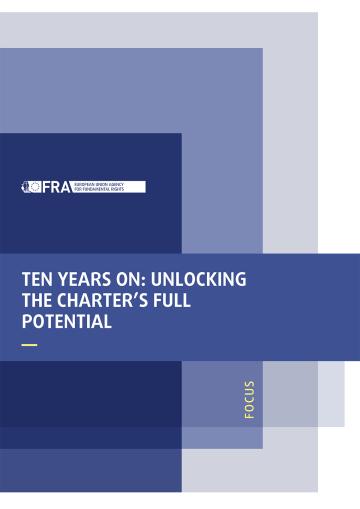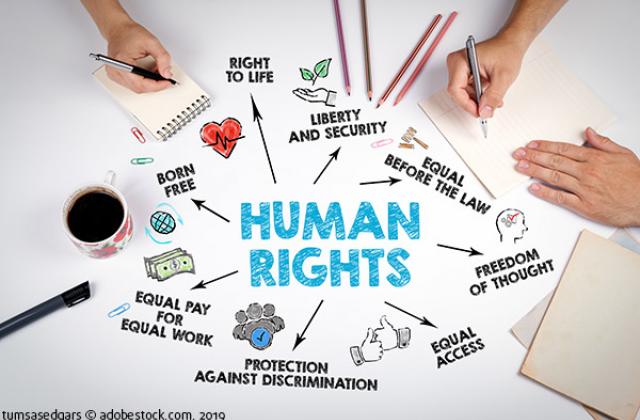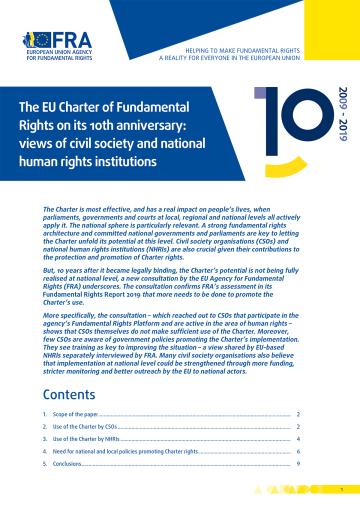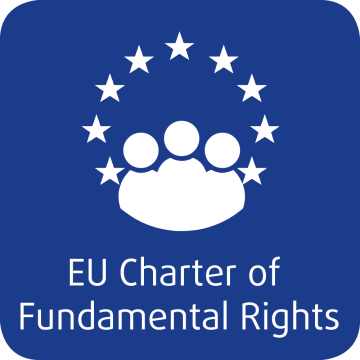
The EU Charter of Fundamental Rights - Use and added value in EU Member States
The Charter of Fundamental Rights of the European Union is the EU’s bill of human rights. It contains 50 articles with substantive rights and principles, followed by four articles with general provisions. Member States have a duty to respect the rights and observe the principles of the Charter whenever they are acting within the scope of binding EU law. Where the Charter provisions are sufficiently precise and unconditional, they can have a direct effect at the national level – for instance in national courtrooms. Charter provisions that are ‘principles’ can only be invoked before a court if implemented by legislative or executive acts.
Examples of the Charter’s use are provided below in Charter-country-sheets for each Member State. In addition, a link is provided to the national case law which has a direct reference to the Charter. More country-specific information (including examples of experts, training institutions and university courses) is made available on request at charter@fra.europa.eu.
 Austria
Austria
- EN (pdf 264KB)
- DE (pdf 298KB)
- National Case Law
 Belgium
Belgium
- EN (pdf 260KB)
- FR (pdf 286KB)
- NL (pdf 283KB)
- National Case Law
 Bulgaria
Bulgaria
- EN (pdf 261KB)
- BG (pdf 309KB)
- National Case Law
 Croatia
Croatia
- EN (pdf 260KB)
- HR (pdf 282KB)
- National Case Law
 Cyprus
Cyprus
- EN (pdf 260KB)
- EL (pdf 303KB)
- National Case Law
 Czechia
Czechia
- EN (pdf 261KB)
- CS (pdf 288KB)
- National Case Law
 Denmark
Denmark
- EN (pdf 260KB)
- DA (pdf 293KB)
- National Case Law
 Estonia
Estonia
- EN (pdf 259KB)
- ET (pdf 279KB)
- National Case Law
 Finland
Finland
- EN (pdf 260KB)
- FI (pdf 283KB)
- SV (pdf 362KB)
- National Case Law
 France
France
- EN (pdf 263KB)
- FR (pdf 291KB)
- National Case Law
 Germany
Germany
- EN (pdf 261KB)
- DE (pdf 294KB)
- National Case Law
 Greece
Greece
- EN (pdf 260KB)
- EL (pdf 302KB)
- National Case Law
 Hungary
Hungary
- EN (pdf 259KB)
- HU (pdf 290KB)
- National Case Law
 Ireland
Ireland
- EN (pdf 260KB))
- National Case Law
 Italy
Italy
- EN (pdf 261KB)
- IT (pdf 284KB)
- National Case Law
 Latvia
Latvia
- EN (pdf 259KB)
- LV (pdf 289KB)
- National Case Law
 Lithuania
Lithuania
- EN (pdf 258KB)
- LT (pdf 282KB)
- National Case Law
 Luxembourg
Luxembourg
- EN (pdf 262KB)
- FR (pdf 288KB)
- National Case Law
 Malta
Malta
- EN (pdf 259KB)
- MT (pdf 287KB)
- National Case Law
 Netherlands
Netherlands
- EN (pdf 258KB)
- NL (pdf 287KB)
- National Case Law
 Poland
Poland
- EN (pdf 237KB)
- PL (pdf 286KB)
- National Case Law
 Portugal
Portugal
- EN (pdf 260KB)
- PT (pdf 286KB)
- National Case Law
 Romania
Romania
- EN (pdf 258KB)
- RO (pdf 285KB)
- National Case Law
 Slovakia
Slovakia
- EN (pdf 261KB)
- SK (pdf 287KB)
- National Case Law
 Slovenia
Slovenia
- EN (pdf 260KB)
- SL (pdf 281KB)
- National Case Law
 Spain
Spain
- EN (pdf 259KB)
- ES (pdf 282KB)
- National Case Law
 Sweden
Sweden
- EN (pdf 261KB)
- SV (pdf 284KB)
- National Case Law
 United Kingdom
United Kingdom
- EN (pdf 261KB)
- National Case Law - not updated



